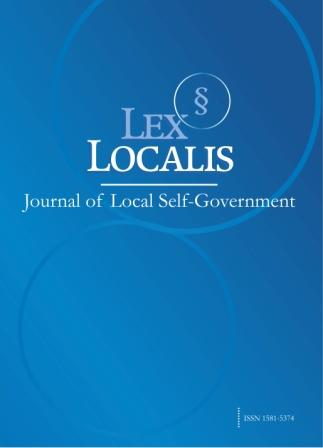Public Policy and Consumer Behavior: The Role of Regulatory Approaches in Shaping Purchase Intention through Mental Imagery Processing
DOI:
https://doi.org/10.52152/2907Ključne besede:
environmental stimuli; mental imagery; purchase intention; closeness analysis; linear regressionPovzetek
In the field of consumer behavior, exploring the relationship between environmental stimuli, mental imagery, and purchase intention has been a hot research topic. Based on relevant theories and literature review, this paper puts forward four hypotheses, collects data from 1850 consumers, and uses SmartPLS software to conduct correlation analysis, linear regression and interaction term regression analysis results show that there is a significant positive correlation between environmental stimulation (ES) and positive degree of mental imagery (PI), r=0.49, P<0.01, i.e., the relationship between environmental stimulation and of mental imagery are positively correlated. Facilitation focus (RF) has a significant positive effect on the processing mode of consumers' mental imagery with a non-standard coefficient of 0.466 and a standard coefficient of 0.472, and defense focus also has a significant positive effect on the processing mode of consumers' mental imagery. The non-standard coefficient is 0.783 and the standard coefficient is 0.837, and the regression coefficient of the degree of positive mental imagery (PI) on purchase intention is 0.529, which indicates that the more positive the mental imagery formed by consumers, the stronger their purchase intention. The interaction term between environmental stimuli and regulatory focus type (ES × RF) has a significant positive effect on purchase intention, with a regression coefficient of 0.368, and is significant at the 0.05 level with a P-value of 0.012, which means that the interaction between socio-environmental stimuli and the regulatory focus theory affects purchase intention.
Literatura
Kleine-Kalmer, R., Profeta, A., Daum, D., & Enneking, U. (2021). Pre-Launch Exploration of Consumer Willingness to Purchase Selenium-and Iodine-Biofortified Apples—A Discrete Choice Analysis of Possible Market Settings. Nutrients, 13(5), 1625.
Lucas, B. F., & Brunner, T. A. (2024). Factors influencing the willingness to purchase and consume microalgae-based foods: An exploratory consumer study. International Journal of Gastronomy and Food Science, 100974.
Hlophe, S. L., & Ellis, D. (2024). Changing consumer attitudes to make the Corporate Social Responsibility investment in sustainable fish production, a worthwhile investment to corporates. Corporate Social Responsibility and Environmental Management, 31(1), 344-356.
Lin-Hi, N., Kempen, R., Petrushevska, M., & Hattrup, K. (2020). The new competitive environment of social enterprises: an experimental study on perceptions and consumer intentions for social vs. traditional enterprises. International journal of entrepreneurial venturing, 12(1), 58-84.
Gupta, K., & Deol, O. S. (2022). Environment, Social, and Governance Performance and Firm Risk-A study of the Indian Consumer Goods Sector.
Inzlicht, M., Werner, K. M., Briskin, J. L., & Roberts, B. W. (2021). Integrating models of self-regulation. Annual review of psychology, 72(1), 319-345.
Kim, J. H., Kim, M., Yoo, J., & Park, M. (2021). Consumer decision-making in a retail store: the role of mental imagery and gender difference. International Journal of Retail & Distribution Management, 49(3), 421-445.
Takaya, M., & Yamashita, H. (2020). A study on the psychological change of consumer based on AIDAS model. Total Quality Science, 5(2), 53-63.
Brycepetofitowne, B. P. T. . (2023). The influence of consumer expertise and psychological value on product pricing: an examination of the consumer evaluation and psychological value pricing theory.
Agyenim-Boateng, C. , Tetteh, L. A. , Kwarteng, A. , Muda, P. , & Sunu, P. . (2022). Utilizing the social cognitive career theory in understanding students' choice in selecting auditing as a career: evidence from ghana. Journal of Applied Accounting Research, 23(3), 715-737.
Rakib, M. A. N. , Chang, H. J. , & Jones, R. P. . (2022). Effective sustainability messages triggering consumer emotion and action: an application of the social cognitive theory and the dual-process model. Sustainability, 14.
Fennis, B. M. (2022). Self-control, self-regulation, and consumer wellbeing: A life history perspective. Current opinion in psychology, 46, 101344.
Marcellis-Warin, N., Marty, F., Thelisson, E., & Warin, T. (2022). Artificial intelligence and consumer manipulations: from consumer's counter algorithms to firm's self-regulation tools. AI and Ethics, 2(2), 259-268.
Wang, Y., & Jiao, Y. (2024). Can environmental science popularization of tourism live streaming stimulate potential tourists’ pro-environmental behavior intentions? A construal level theory analysis. Journal of Hospitality and Tourism Management, 60, 42-50.
Williams, S. E., Quinton, M. L., Veldhuijzen van Zanten, J. J., Davies, J., Möller, C., Trotman, G. P., & Ginty, A. T. (2021). Mastery imagery ability is associated with positive anxiety and performance during psychological stress. Frontiers in Psychology, 12, 568580.
Hussain, S., Li, Y., & Li, W. (2021). Influence of platform characteristics on purchase intention in social commerce: mechanism of psychological contracts. Journal of theoretical and applied electronic commerce research, 16(1), 1-17.
Guo, Q., & You, W. (2023). Research on psychological attributions and intervention strategies of new energy hybrid vehicle purchase behavior. Scientific Reports, 13(1), 9853.
Engel, L., Vilhelmsen, K., Richter, I., Moritz, J., Ryynänen, T., Young, J. F., ... & Klöckner, C. A. (2024). Psychological factors influencing consumer intentions to consume cultured meat, fish and dairy. Appetite, 200, 107501.
Dreyer, H., Sonnenberg, N., & Van der Merwe, D. (2022). Transcending linearity in understanding green consumer behaviour: A social–cognitive framework for behaviour changes in an emerging economy context. Sustainability, 14(22), 14855.
Iqbal, S., & Khan, M. I. (2020). Spirituality as a predictor of psychological well-being: An explanatory mechanism of religiosity and sustainable consumption. Religions, 11(12), 634.
Objavljeno
Številka
Rubrika
Licenca
Avtorske pravice (c) 2025 Lex localis - Journal of Local Self-Government

To delo je licencirano pod Creative Commons Priznanje avtorstva-Nekomercialno-Brez predelav 4.0 mednarodno licenco.







